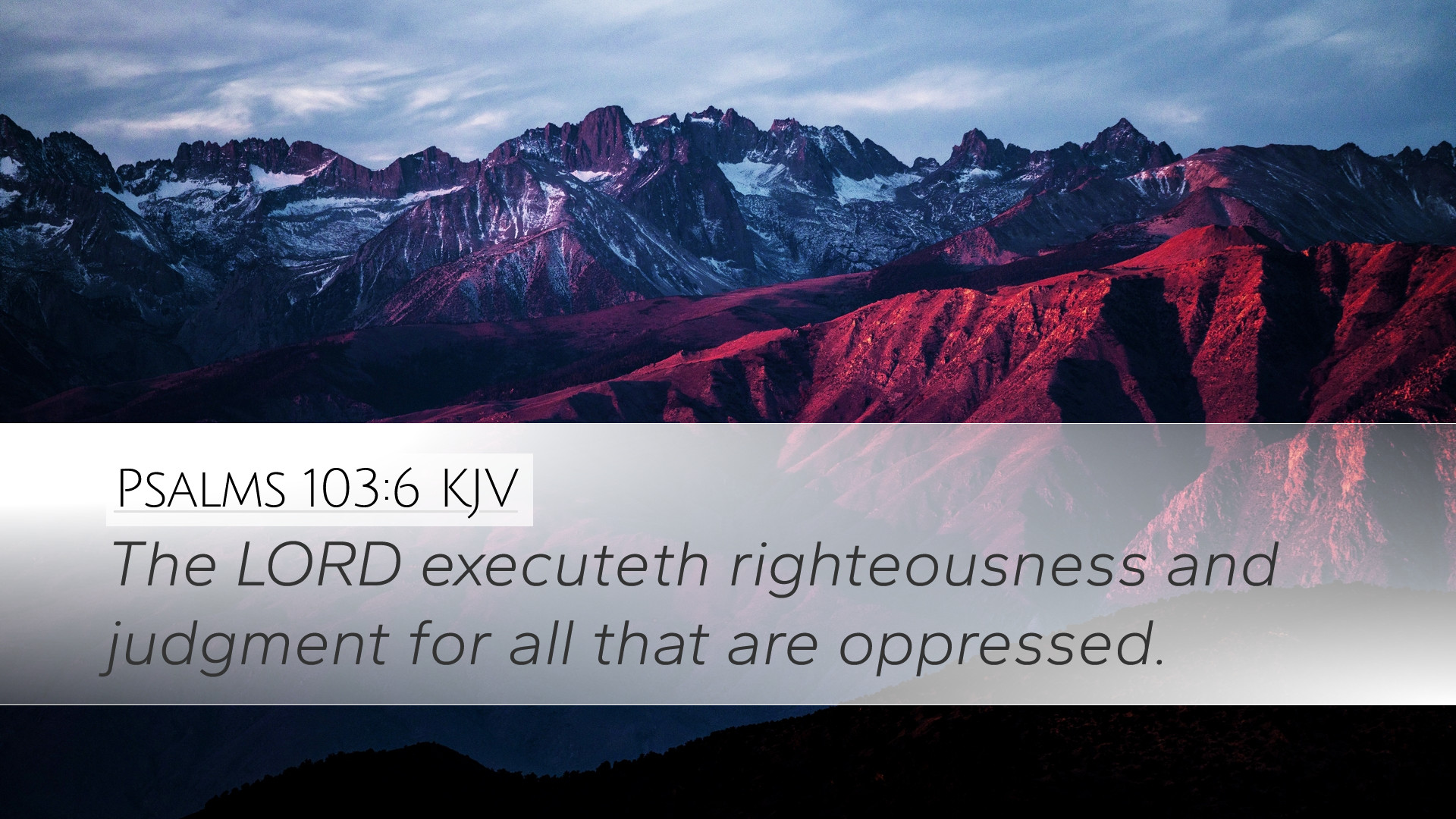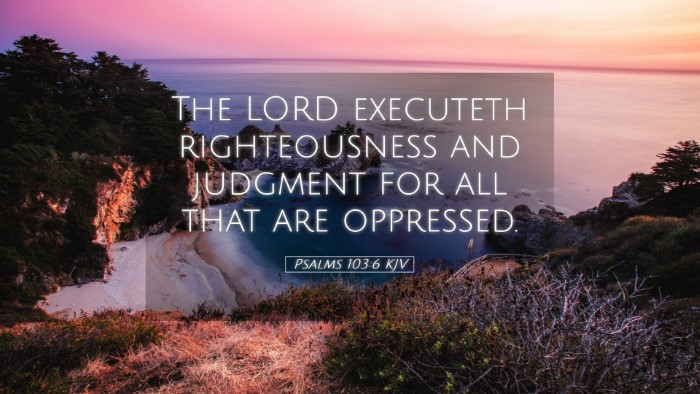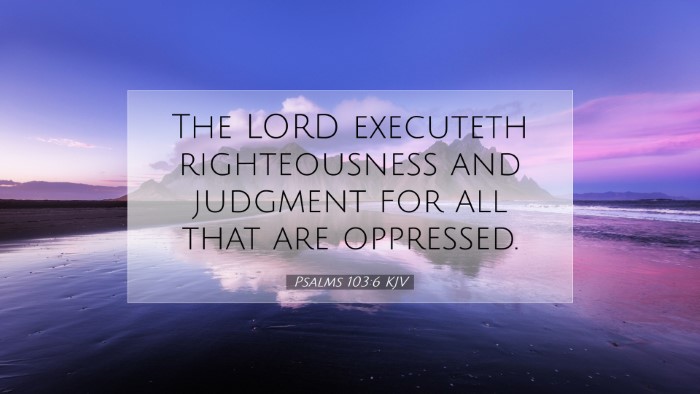Psalms 103:6 Commentary
Verse: "The Lord executes righteousness and justice for all who are oppressed."
Introduction
The verse Psalm 103:6 encapsulates the essence of God's character as a righteous and just deity who acts on behalf of those who are oppressed. This strong theological assertion has been the subject of deep reflection and commentary, particularly from the perspectives of notable theologians such as Matthew Henry, Albert Barnes, and Adam Clarke. This commentary synthesizes insights from these public domain sources to explore the significance of this scripture for pastors, students, theologians, and scholars.
Understanding "The Lord executes righteousness and justice"
This phrase highlights God's active role in the maintenance of moral order and justice. As Matthew Henry aptly notes, the Lord is portrayed as not merely a passive observer, but one who diligently applies His righteousness. God's exercise of righteousness is a testament to His character—a character that is unwaveringly just and good. Albert Barnes mirrors this sentiment by explaining that God’s dealings are never arbitrary; rather, they are characterized by fairness and equity.
The dual aspects of "righteousness" and "justice" reveal the holistic nature of God's governance over the world. Righteousness pertains to God's nature and His perfect moral standard, while justice refers to the execution of that standard in human affairs. This is not just judicial in its essence; it also embodies an ethical deployment of love and care for creation.
The Nature of God’s Justice
God’s justice is comprehensive, extending to those who are marginalized and oppressed. Adam Clarke emphasizes that divine justice is neither blind nor indifferent; it is perceptive and compassionate. God possesses an intimate understanding of human suffering, especially that of the oppressed. The fact that He "executes" justice indicates that He has the authority and the power to rectify injustices.
In the context of the ancient Near Eastern understanding, where idol worship often led to social injustices, this assertion about God would bring profound hope to those suffering under oppression. The oppressed can find solace in knowing that their plight is not unnoticed by God, as Henry suggests. He is aware, involved, and He cherishes His creation, intervening in human affairs when necessary.
Implications for Believers
For believers, this verse serves as both a comfort and a call to action. The assurance that God is an advocate for the oppressed leads to a deeper understanding of the nature of divine support through trials. As Barnes articulates, the faithful are encouraged to trust in God's justice, knowing that although injustices may prevail for a time, divine intervention is assured. This fosters a spirit of perseverance and faith among the faithful.
Moreover, this scripture compels Christians to embody the justice and righteousness of God in their own lives. Clarke remarks that followers of Christ are called to align their actions with God’s character by advocating for the marginalized and standing against oppression. This call to action reverberates throughout Christian teachings, aligning with the biblical mandate to love one’s neighbor and pursue justice (Micah 6:8).
The Theological Significance
Psalms 103:6 offers rich theological insights, particularly in the understanding of divine sovereignty and human justice. The active role of God in executing justice suggests a profound belief in God's providential governance over creation. This theological richness implies that God is not indifferent to human suffering; rather, He is deeply involved in the affairs of humanity.
Matthew Henry points out that God's actions reflect His character, and therefore, our understanding of righteousness should be aligned with God's nature. The verse confirms that God's justice is not simply retributive; it also includes restorative elements—indicating that God's ultimate desire is for reconciliation and restoration for the oppressed.
Conclusion
In summary, Psalm 103:6 is a profound declaration of God's commitment to righteousness and justice for the oppressed. This verse reassures believers of God's involvement in human affairs, especially regarding injustices suffered by the vulnerable. As past reflections by Henry, Barnes, and Clarke demonstrate, it calls us to both trust in God's timing and actively participate in the pursuit of justice around us.
As we reflect on this scripture, let us be reminded of our call to advocate for those who cannot speak for themselves, embodying God's justice in our communities, and relying on His righteousness as our ultimate defense and guide.


